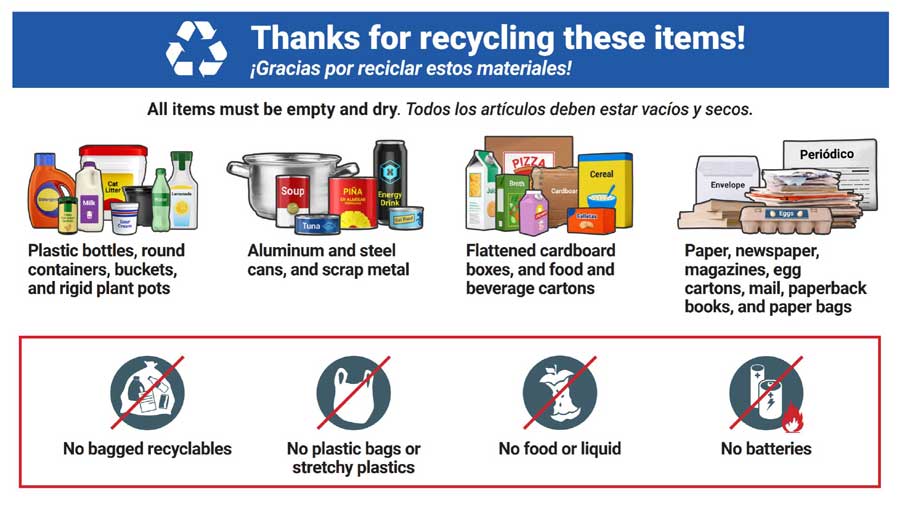Southern Oregon legislators chart course for revising Measure 110
Published 10:45 am Thursday, November 16, 2023

- Senator Jeff Golden addressed a number of topics before opening the town hall to questions.
Oregon legislators plan to address Measure 110 in the upcoming five-week legislative session, and four local lawmakers representing parts of Jackson County have their own ideas on the best path forward to add accountability to Oregon’s troubled drug-decriminalization law.
The session doesn’t start until Feb. 5, but Measure 110 is already certain to be a priority, according to state Sen. Jeff Golden, D-Ashland, Republican Reps. Christine Goodwin, R-Canyonville, and Kim Wallan, R-Medford, and Rep. Pam Marsh, D-Ashland.
In interviews this week, the lawmakers spoke about what they want to see from the Legislature regarding Measure 110, as well as noting what realistically might be feasible.
They also shared differing views on bringing back criminal penalties for possessing user amounts of narcotics such as methamphetamine or heroin.
On Tuesday, Oregon House Republicans called for the state’s Democratic leaders to make several changes to Measure 110, including criminal penalties for the possession of fentanyl, methamphetamine and heroin, and a ban on public drug use.
Golden this week expressed the most reluctance of the four local lawmakers to bringing back drug penalties, arguing that the “majority feeling” was that voters didn’t believe criminalizing small amounts of drugs was working when 58% of Oregon voters passed Measure 110 in 2020.
“We’re not so interested in returning to a model that didn’t work, even if the change isn’t materializing as fast as we want it,” Golden said.
Possessing user amounts of narcotics such as methamphetamine or heroin was a felony in Oregon until 2017, when then-Gov. Kate Brown downgraded the crime to a misdemeanor. The law was further reduced to a violation after Measure 110’s passage.
Golden said he understands the argument for recriminalizing as an incentive for treatment, but he noted how in the past, drug convictions made it “very hard to reenter society.” He also believes that other incentives can bring about the same result. The discussions are largely “surface-level,” but one idea being explored is penalizing those who refuse to go to treatment.
On repealing Measure 110, Golden said that revisions to the drug-decriminalization law are more likely than a full repeal. He said “it’s early” in the discussions, but legislators are looking in three directions: banning public use of drugs, finding a mechanism to incentivize treatment and expanding access to high-quality treatment.
“Those are the three threads that I’m hearing most often,” Golden said.
The Legislature is technically capable of amending or repealing any law that’s not in the Oregon Constitution, but Golden said that wholly undoing a voter-passed initiative “would be a pretty rogue area in this case.”
Charting the path forward won’t be simple, Golden said, noting how the influx of cheap fentanyl complicates the state’s addiction problems. He said he understands the public’s “need to feel a sense of order” to safeguard a civil society, but “in a world where wildly addictive drugs are available on the streets, we’re going to continue to have these problems.”
Golden cautions the public to beware of anyone promising rapid results.
“We’re dealing with a global or at least a national problem,” Golden said. “We’re scrambling to get a path forward right now.”
Wallan indicated that she may be on board with a proposal that enforces treatment, noting that “there’s still a need for law enforcement.”
“It’s like a diversion,” Wallan said. “If you take the treatment, the crime goes away.”
Wallan said that what occurred before decriminalization “wasn’t a perfect system,” but she said the results were better than what she’s seeing now. She mentioned a Nov. 11 Wall Street Journal article about Oregon’s drug-decriminalization law, which reported that out of the roughly 6,000 people ticketed for drug possession since Measure 110 went into effect in 2021, only 92 people have called and completed required assessments needed to connect them to services.
Wallan said that depending on what the Legislature tackles in the short session, she would support revisions over a repeal. Her preference, however, is to keep the law intact because it would still utilize marijuana tax revenue to boost treatment.
“A full repeal wouldn’t leave the treatment part in place,” Wallan said.
Goodwin is a member of the Joint Interim Committee on addiction and Community Safety Response, and she has called for Measure 110’s repeal. Goodwin said that at the very least she wants to see criminal penalties restored to Measure 110. Goodwin believes penalties — or at least the threat of them — are a necessary intervention for breaking the cycle of addiction.
“You can’t just make a soft suggestion to an addict toward treatment,” Goodwin said. “They’re not going to do it willingly.”
She anticipates recriminalization will be a “sticking point” between Republicans and Democrats in the upcoming session.
“I think the hiccup is they’re really obstructing recriminalization,” Goodwin said of Democrats. “They’re fighting against even a Class A misdemeanor.”
Goodwin said she believes that the current system’s lack of barriers for addicts is “just cruel to me.”
“They’re in a prison — no walls, but they’re in a prison,” Goodwin said. “Evidence-based treatment programs — that’s what we’re calling for.”
Goodwin said that she has personally seen how addiction impacted her brother and cast ripples through her family.
“I’ve personally experienced this in my family, and it’s hard work,” Goodwin said. “Addiction is not a victimless crime.”
“It is so costly to their families,” Goodwin said. “Just to give up on people is not the answer.”
Marsh said that she did not vote for Measure 110 when it was on the ballot in 2020, but she doesn’t see a full repeal as the solution.
“I think it’s complicated,” Marsh said.
She noted her past experience in the drug treatment field in the 2000s — Marsh was deputy director of addiction treatment nonprofit OnTrack between 2005 and 2012 when possessing drugs user amounts of meth, heroin and cocaine were felony crimes — and said, “frankly we never saw the numbers go down.”
“I also believe in accountability,” Marsh said.
Further, Marsh said she sees drug decriminalization as just one component in Oregon’s addiction and homelessness crises. She attributes the high degree of homelessness as stemming from the pandemic and described Measure 110 as “in its own bubble” before the overlapping problems were magnified by “this tsunami of fentanyl.”
“They overlap in the Venn diagram,” Marsh said. “If you change Measure 110, fentanyl isn’t going away.”
Marsh sees plenty of simple fixes, such as removing juveniles and minors from being covered by the drug-decriminalization law.
“The results are really wacky,” Marsh said. “It’s worse to be caught with a drink than it is to be caught with fentanyl? I think that needs to be changed.”
Goodwin and Wallan voiced similar concerns about youths. Goodwin said there is a big concern among legislators about flavored tobacco and nicotine products.
“I don’t want kids smoking, but we’re still not facing the really deadly stuff,” Goodwin said.
Though the legislative short session is months away, Golden said that he sees the potential for an “unusually bipartisan” approach in the Legislature to addressing Measure 110.
“There’s definitely more potential than other issues — but it’s also an election year,” Golden said, “I’m optimistic, though.”










